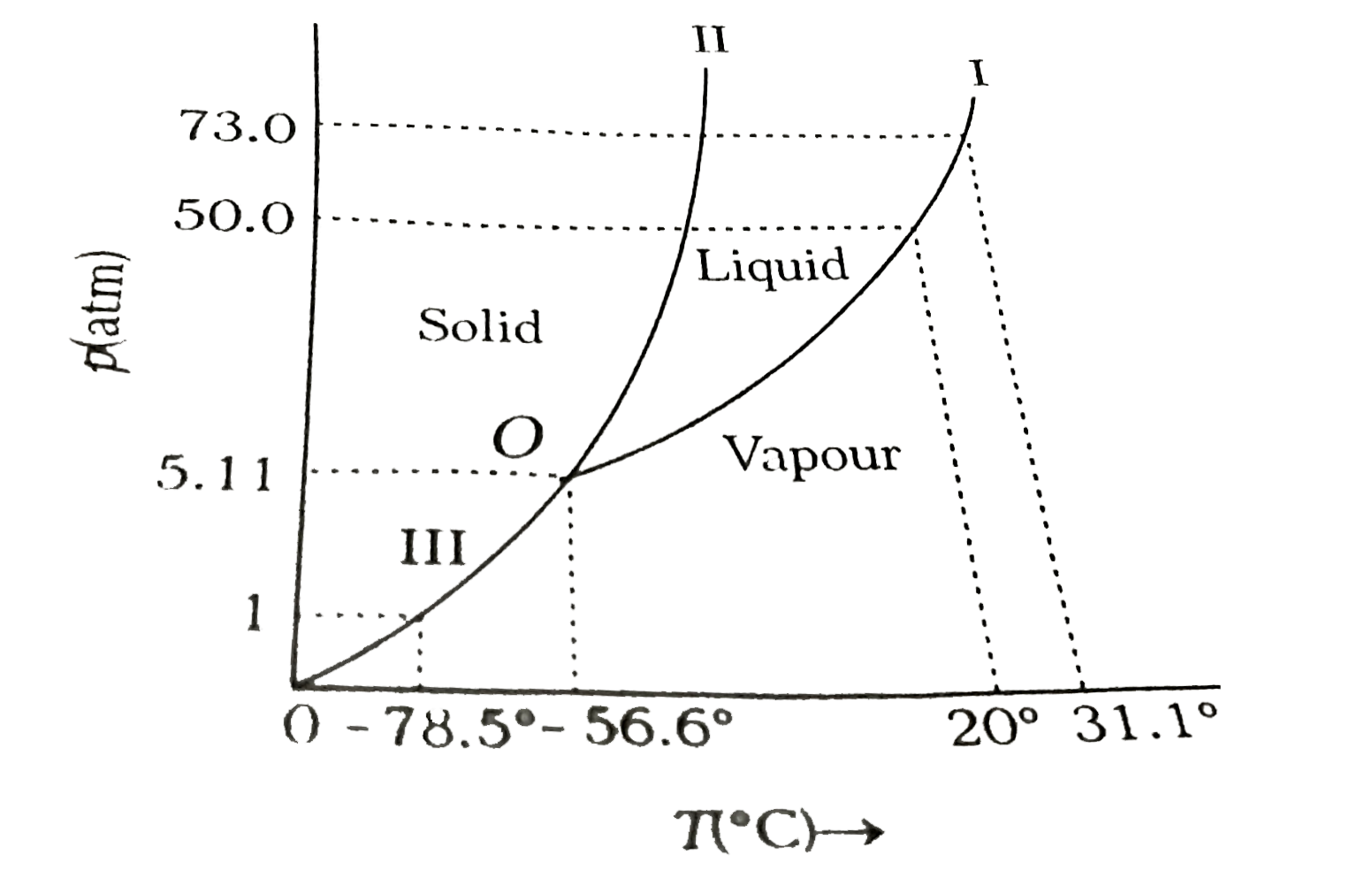What is the effect of branching on melting and boiling points of alkanes ?
Step-by-Step Solution:
1. Understanding Alkanes and Their Isomers:
- Alkanes are hydrocarbons with the general formula CnH2n+2. They can exist in different structural forms known as isomers.
- For example, pentane (C5H12) has three isomers: n-pentane, isopentane, and neopentane.
2. Effect of Branching on Boiling Point:
- When comparing isomers with the same number of carbon atoms, branching affects their physical properties.
- As branching increases, the surface area of the molecule decreases. This is because branched alkanes have a more compact structure compared to their straight-chain counterparts.
- A decrease in surface area leads to a reduction in Van der Waals forces of attraction between the molecules.
- Consequently, the boiling point of branched alkanes is lower than that of straight-chain alkanes.
- Order of boiling points for pentane isomers: n-pentane > isopentane > neopentane.
3. Effect of Branching on Melting Point:
- In terms of melting point, the situation is somewhat different. As branching increases, the molecules become more compact and symmetrical.
- A more compact structure allows for stronger intermolecular forces (Van der Waals forces) due to better packing of the molecules.
- Therefore, the melting point increases with increased branching.
- Order of melting points for pentane isomers: neopentane > n-pentane > isopentane.
4. Conclusion:
- In summary, increased branching in alkanes leads to a decrease in boiling points due to reduced surface area and weaker Van der Waals forces.
- Conversely, increased branching results in higher melting points due to stronger intermolecular forces from more compact and symmetrical structures.
- Alkanes are hydrocarbons with the general formula CnH2n+2. They can exist in different structural forms known as isomers.
- For example, pentane (C5H12) has three isomers: n-pentane, isopentane, and neopentane.
- When comparing isomers with the same number of carbon atoms, branching affects their physical properties.
- As branching increases, the surface area of the molecule decreases. This is because branched alkanes have a more compact structure compared to their straight-chain counterparts.
- A decrease in surface area leads to a reduction in Van der Waals forces of attraction between the molecules.
- Consequently, the boiling point of branched alkanes is lower than that of straight-chain alkanes.
- Order of boiling points for pentane isomers: n-pentane > isopentane > neopentane.
- In terms of melting point, the situation is somewhat different. As branching increases, the molecules become more compact and symmetrical.
- A more compact structure allows for stronger intermolecular forces (Van der Waals forces) due to better packing of the molecules.
- Therefore, the melting point increases with increased branching.
- Order of melting points for pentane isomers: neopentane > n-pentane > isopentane.
- In summary, increased branching in alkanes leads to a decrease in boiling points due to reduced surface area and weaker Van der Waals forces.
- Conversely, increased branching results in higher melting points due to stronger intermolecular forces from more compact and symmetrical structures.
Topper's Solved these Questions
- ALKANES AND CYCLOALKANESBOOK - CENGAGE CHEMISTRY ENGLISHCHAPTER - ALKANES AND CYCLOALKANESEXERCISE - EXERCISES
24 Videos
- ALKANES AND CYCLOALKANESBOOK - CENGAGE CHEMISTRY ENGLISHCHAPTER - ALKANES AND CYCLOALKANESEXERCISE - Paragraph for problem
24 Videos
- ALKANES AND CYCLOALKANESBOOK - CENGAGE CHEMISTRY ENGLISHCHAPTER - ALKANES AND CYCLOALKANESEXERCISE - Archives
13 Videos
- ALKENES AND ALKADIENESBOOK - CENGAGE CHEMISTRY ENGLISHCHAPTER - ALKENES AND ALKADIENESEXERCISE - Single correct Answer
14 Videos
Similar Questions
Knowledge Check
2 g of sugar is added to one litre of water to give sugar solution. What is the effect of addition of sugar on the boiling point and freezing point of water ?
ABoth boiling point and freezing point increaseBBoth boiling point and freezing point decreaseCBoiling point increases and freezing point decreasesDBoiling point decreases and freezing point increases.
What is the effect of increase in pressure on the boiling point of a liquid ?
View SolutionWhat is the effect of pressure on the boiling point and freezing point of water.
View SolutionAnswer the following questions based on the p-T phase diagram of carbon dioxide as shown in the figure .
(i) At what temperature and pressure can the solid , liquid and vapour phases of C02 co-exist in equilibrium?
(ii) What is the effect of decrease of pressure on the fusion and boiling point of C02 ?
(iii) What are the critical temperature and pressure for C02 ? what is their significance ?
(iv) Is C02 solid , liquid, or gas at (a) −70∘Cunder 1 atm (b) −60∘C under 10 atm (c) 15∘C under 56 atm ?

View SolutionIn general the melting and boiling points of transition metals
View SolutionIn general the melting and boiling points of transition metals
View SolutionWhat effect does branching of an alkane chain has on its boiling point?
View SolutionExplain why ionic solids have high melting and boiling points.
View Solution
